Psychiatric Fliedner Clinic in Düsseldorf
When I was conducting my psychiatric practice with Professor Hans-Werner Gessmann at the Bergerhausen Psychotherapeutic Institute, I had the opportunity to visit a German psychiatric clinic – the Fliedner Hospital in Düsseldorf\Ratingen.
The clinic was founded in 1973. Today, 18 different therapeutic programmes are carried out here. The rooms of the clinic, in which the patients are treated as in-patients, are modern and comfortably furnished and are located in a densely populated district of Düsseldorf. There are 160 beds for adults and 15 beds for children, there are also several rooms for relaxation training and friendly equipped psychotherapy rooms.
In the Fliedner-Klinik the patient should not be isolated from his family, but reintegrated into his social environment. The individual therapies with the psychotherapists make it possible to rework personal experiences. In addition, group psychotherapies (max. 10 persons) take place, which have proved to be most effective in the treatment of social behavior disorders.
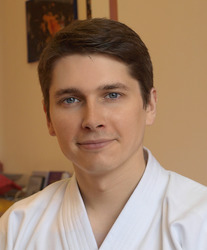
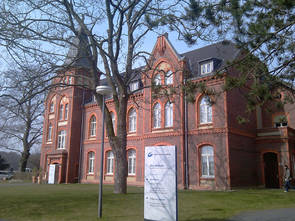
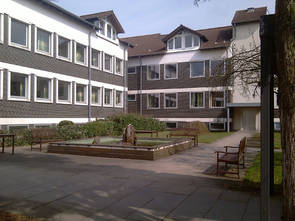
Complex psychotherapy consists of cognitive behavioural therapy, individual therapy sessions and group discussions, art therapy, work therapy, relaxation training and sport.
By far not everyone seeks psychological help, even if they have physical complaints. For most people it is difficult to take their psychological problems seriously. Today, however, psychosomatic disorders are becoming more and more common due to psychological causes. Life is getting more and more complicated, there are more and more difficulties in communication, more and more complicated social situations make new demands. Situations often arise that make one helpless. The feeling of exhaustion and fear as well as physical complaints arise. What at first looks like a simple disorder can later develop into a serious illness.
The clinic in Düsseldorf maintains an emergency outpatient clinic and carries out short- and long-term treatment programmes that take into account the latest findings from medical research. Psychological, psychiatric and supportive forms of therapy are combined.
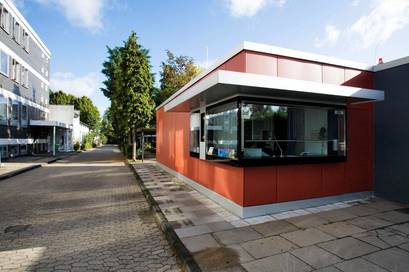
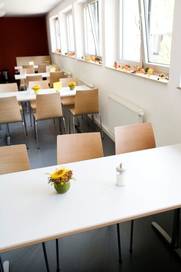
The psychiatric Fliedner Clinic is supported by the Theodor Fliedner Institute and its foundation. The social-therapeutic work is carried out for the entire Ruhr area. The administrative director of this foundation is Prof. Dr. Hans Hildermann. Treatment in the clinic is paid for by the public (no more than 28 days per year) or private health insurance.
The main activity of the clinic is psychoanalytical diagnostics including psychometric and neuropsychological examinations. The advantage of the outpatient clinic is that the patient remains integrated in his social environment, that he knows how to continue his accustomed way of life. On the premises of the clinic there are possibilities for walks and sports. Shopping is done in a shop and you can sit comfortably together in a cafe. The patients are also busy with handicrafts, such as making the weather vanes, which are delivered to the various regions of Germany.
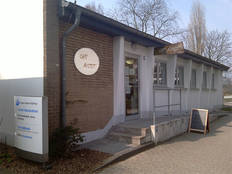
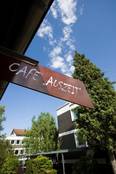
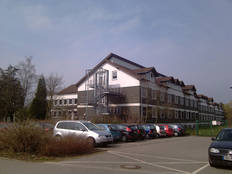
Depression, exhaustion syndromes, restlessness, panic disorders, compulsive disorders, post-traumatic stress disorders, psychosomatic disorders, eating disorders, chronic pain, drug addiction, personality disorders, and psychoses are treated in the clinic.
Among others, the following forms of therapy are used:
- Psychodynamic therapy
- behavioural therapy
- psychopharmacotherapy
- light therapy
- family consultations
- relaxation methods
- work therapy
- art therapy
- sports therapy
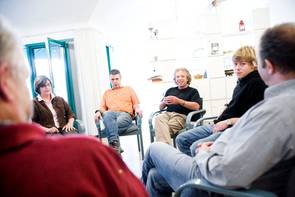
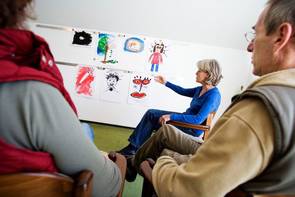
Most mental disorders are easier to cure if you look for a remedy at the beginning of the disorder. The clinic is often first approached by the patient’s relatives.
An example:
A woman lost her husband a long time ago. He had died of a heart attack. In the meantime the relatives had come to terms with this situation and their lives became ordinary again. The woman’s relationships with her children and friends developed positively again. Suddenly, at first barely noticeable, Mrs. A. began to change. When she met her neighbours, she could not recognize them. She did not congratulate her favourite granddaughter on her birthday. After her purse had disappeared, she was searched for a long time and finally found by her children in the fridge. Mrs. A. now feels helpless, but tries not to show this to her relatives. It is difficult to imagine what is happening in her head. Mrs. A. says that she is healthy, but her relatives have insisted that she consult her family doctor. The doctor referred the patient to the Fliedner Clinic to treat her beginning dementia. This disorder occurs relatively often among seniors.
The dementia syndrome can have different causes. It can be caused by Alzheimer’s disease. But there are also many similar diseases that show these symptoms: continuously increasing forgetfulness and loss of orientation. Some of these diseases are curable. Therefore, thorough diagnostics is of great importance. It consists of laboratory tests and psychological tests. The therapy usually consists of taking the medication, socio-therapeutic treatment and care as well as counseling.
An individual therapy plan is developed for each patient. The aim of the therapy is to preserve and develop the existing resources to reduce the symptoms of the disease.
In care, the focus is on preserving vital skills. When the patient’s treatment ends and he returns home, he must be able to take care of himself. That is why occupational therapy is an indispensable part of social therapy. In the course of the psychological consultations, it is decided how the further course of therapy should be. The patient may be able to return home, but he still needs help with the care. If necessary, care is organized at home.
Depression in seniors is a widespread psychological change. According to research, about 12% of men and 20% of women suffer from depression at least once in their lives. There is daily fatigue, increasing heaviness in the body, indifference to the future, both insomnia and exaggerated sleepiness.
The Fliedner Clinic specializes in the treatment of depression in people over 60 years of age. These are mostly triggered by the loss of close people and the abandonment of professional activities. Depending on the character of the depressive disorder and its severity, different treatments are performed:
Behavioral therapy
– Modeling behavioral situations in a group
Training of memory and attention functions
– The exercises for memory and attention development are performed playfully in order to stimulate brain function again.
Art therapy. Focus – lifestyle.
– Overcoming the symptoms of depression.
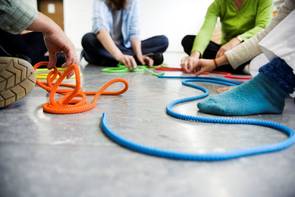

The main therapy is accompanied by several other procedures. To complement the individual work with the psychotherapist, patients are integrated into a group and participate in therapeutic programmes such as physiotherapy and relaxation therapy. Art therapy is also helpful in working with speech disorders.
The Fliedner-Klinik also helps patients with weight disorders. The clinic offers to use the treatment as a day clinic. There are special treatment programmes that take into account the psychological characteristics of each patient. Patients have the opportunity to deal with the causes of their disorder in small groups of 8 people. In today’s society with an oversupply of food, eating disorders often occur. Overweight or excessive emaciation are often caused psychologically, and it is not possible to reduce weight with the help of diets. In addition, massive weight loss can lead to anorexia due to the feeling of hunger and intense physical exertion. Young women suffer most when they develop a compulsive idea to control their weight. Anorexia is very often accompanied by bulimia. The eating disorder is often associated with a lack of self-confidence and guilt. In addition, there are problems in communicating with other people. The treatment of eating disorders is usually difficult due to the patient’s lack of motivation to overcome the disease. Patients very often do not understand that eating disorders are the cause of communication disorders. If the eating disorder lasts long, it is necessary to consult a psychotherapist.

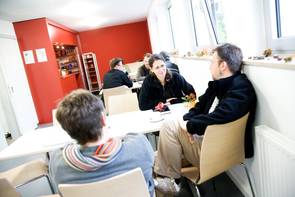
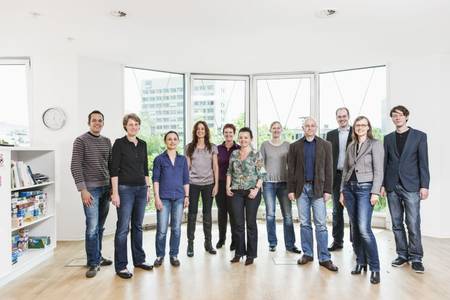
After getting to know the work of the Fliedner Clinic in detail, I got the impression that the staff of the clinic are highly qualified. The psychotherapeutic services they offer are also of a high standard. The clinic staff explain that the most important thing is that the patient feels safe in an atmosphere of love, care and safety. These conditions enable successful treatment of mental illnesses and disorders.
Picture sources
http://www.fliednerklinikduesseldorf.de
